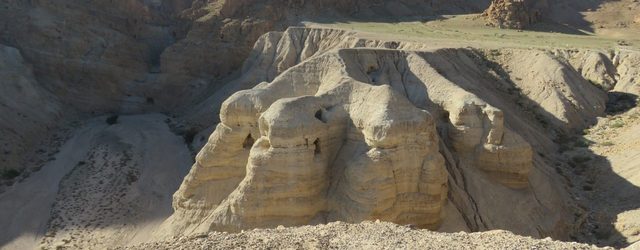ヨハネの福音書21章 復活の主の召し
1.弟子たちの再召命(21:1-14)
ヨハネが最後に描くのは、自分の思い出話です。彼らは夜通し漁をしていました。しかし思うように魚が獲れない。そこにイエスが現れるのです。そしてイエスに勧められるままに網を下ろし、大漁の奇跡が起こるのです。このエピソード、ヨハネがイエスの本格的な弟子になった時のエピソードとよく似ています。
ヨハネがイエスの弟子になったのは、自分の師バプテスマのヨハネに勧められたのがきっかけでした。しかし彼らは、一旦イエスの弟子となり、しばらくイエスのガリラヤ伝道にお付き合いしただけで、その後イエスを離れてしまったようです。その後、イエスが再び、ヨハネを自分の弟子として招く出来事があります。それが、この21章に描かれた出来事とよく似ているのです。
あの時も大漁の奇跡があり、彼らはイエスの招きに応じて、そこから本格的な弟子となっていくのです。ヨハネは自分のスタートに戻るような、この福音書独特のエピソードを最後に加えた意図は何か?考えさせられるところです。
そこで、ヨハネの同僚ペテロが、復活のイエスと出会いながらも「私は漁へ行く」と再び、自分の仕事に戻ろうとしていたことに注目しましょう。復活のような前代未聞の出来事を体験していながら、なぜ彼の心は、自分のかつての生活に戻ろうとしたのでしょう。彼は、約束の聖霊を待つようにというイエスの教えにも、全世界に出て行って福音を宣べ伝えなさいという主の命令にも心を向けていません。もはやイエスとの出来事はなかったかのようです。実に不思議です。
しかしそれは、イエスが復活した事実があっても、それが幻のように感じる現実もあったからではないでしょうか。イエスは、現れたかと思えば消えてしまう、白昼夢を彷徨っているような日々です。いつまでもこんな生活を続けて何になるだろう、現実的に物事を考えるペテロは、このあたりで目を覚まして、踏ん切りをつけよう、漁に行こう、となったのではないでしょうか。しかし、そこにイエスが再び現れるのです。そして、もう一度彼らがイエスに本格的に従った時の出来事が再現されるのです。つまり、イエスが、もう一度本格的な召しを彼らに与えられた。今度は、復活の目に見えぬイエスと共に歩み、そのイエスにお仕えする生涯に踏み出す召しを彼らは与えられるわけです。それは、幻想ではない、確かに手ごたえのある網を引き揚げる、目に見えないイエスに付き従う、歩みなのだ。あなたがたは死に至るまで忠実でありなさい、福音を証ししなさい、と言うわけです。
2.ペテロとイエス(21:16-25)
ペテロとイエスの対話が記録されます。それは、迫害下の苦難にあってイエスを裏切り、情けない思いに沈み、信仰を失いかけていた信仰者に語り掛けるものであったのかもしれません。この対話のポイントは、「私の羊を飼いなさい」というペテロに対する職務への任命にありますが、その働きの基本にイエスを「愛する」動機をしっかり持つということです。当時、ペテロは、どの弟子よりも主に身をささげていると自負しながら、主を否定してしまう面目丸つぶれの状況にありました。そんなペテロに、イエスが三度繰り返したのは、「私を愛しますか」で、それは、イエスに従う基本的な動機を明確に確認するものです。イエスの働きに加わるために何よりも大事なものは、イエスに対する愛です。能力ではありません。もしあなたにイエスに対する愛があるなら、みじめな過去があってもよい、不面目な人生を引きずったとしてもよい、わたしについて来なさいということでしょう。ただそれは神にとっても賭けです。私たちのような不真実なものを神は信頼するのですから。そこがわかれば、私たちの腹の決め方も、一層深いものになります。
21節、主に従うことをある働き人は自己実現の代わりにしています。パウロが言うように、党派心、競争心でこれに加わろうとする者もいます。つまり他人の働きに比較してどれほど自分の働きが優れているかを自慢する働き人がいるものです。しかし、神はそのような働き人を好まれません。主は、あなただけができる働きに期待を寄せて、あなたを召されているのです。そしてあなたの遜りと愛を、しっかり見ておられます。その神の召しに応えることです。では今日も良き一日となるように祈ります。
John 21: The Calling of the Risen Lord
1. the re-calling of the disciples (21:1-14)
John's final picture is his own memoir. They were fishing all night long. But they cannot catch fish as they would like. Then Jesus appears. They let down the nets as Jesus suggested, and a miracle of a great catch occurs. This episode is similar to the episode when John became a full-fledged disciple of Jesus.
John became a disciple of Jesus because he was recommended to do so by his teacher, John the Baptist. However, it seems that once they became disciples of Jesus, they only accompanied Jesus on His Galilean mission for a while and then left Him. Later, Jesus again invites John to become His disciple. That is very similar to the event described in this chapter 21.
There was a great fishing miracle that time, too, and they responded to Jesus' invitation and became full-fledged disciples from there. What was John's intention in adding this unique episode of the Gospel at the end, as if he were returning to his own start? It is a thought-provoking point.
Let us note, then, that John's colleague Peter was about to return to his own work, again saying, "I am going fishing," even though he had encountered the resurrected Jesus. Why did his heart want to return to his former life while experiencing such an unprecedented event as the resurrection? His mind was not on Jesus' teaching to wait for the promised Holy Spirit, nor on the Lord's command to go into all the world and preach the gospel. It is as if the incident with Jesus had never happened. It is indeed strange.
But this may be because, despite the fact of Jesus' resurrection, there was a reality that made it seem like an illusion. Jesus appears and then disappears, and we are wandering around in daydreams. Peter, who thinks realistically about what it would be like to live like this forever, must have woken up around this point and decided to step down and go fishing. But then Jesus reappears. And then, the events of the time when they followed Jesus in earnest once again will be reenacted. In other words, Jesus once again gave them a full-fledged calling. This time, they are called to walk with the invisible Jesus of the resurrection and to step out into a life of service to him. It is not an illusion, but a walk with the invisible Jesus, following him as he pulls up a net that is surely palpable. He says, "Be ye faithful unto death, and testify of the gospel.
2. Peter and Jesus (21:16-25)
The dialogue between Peter and Jesus is recorded. It may have been a message to the believer, who had betrayed Jesus in his suffering under persecution, was sinking into a pitiful state, and was on the verge of losing his faith. The point of this dialogue is the appointment of Peter to the office of "shepherd my sheep," but with a firm motivation to "love" Jesus as the basis of his ministry. At the time, Peter was in a situation where he denied the Lord, even though he prided himself on offering himself to the Lord more than any of the disciples. To such Peter, Jesus repeated three times, "Do you love me?" which clearly confirms the basic motivation for following Jesus. The most important thing above all else to join Jesus' ministry is love for Him. It is not ability. If you have love for Jesus, it doesn't matter if you have a miserable past, if you have led a dissolute life, you will follow me. But it is a gamble, even for God. God trusts in untruths like us. Once we understand this, our resolve will be deeper.
Verse 21, some workers substitute self-fulfillment for following the Lord. As Paul says, some try to join in this with partisanship and competitiveness. In other words, there are workers who boast about how good their own work is compared to the work of others. But God does not like such workers. The Lord is calling you with the expectation of the work that only you can do. And He is watching your irreverence and love very carefully. You must respond to God's call. I pray that you have a good day today.
















